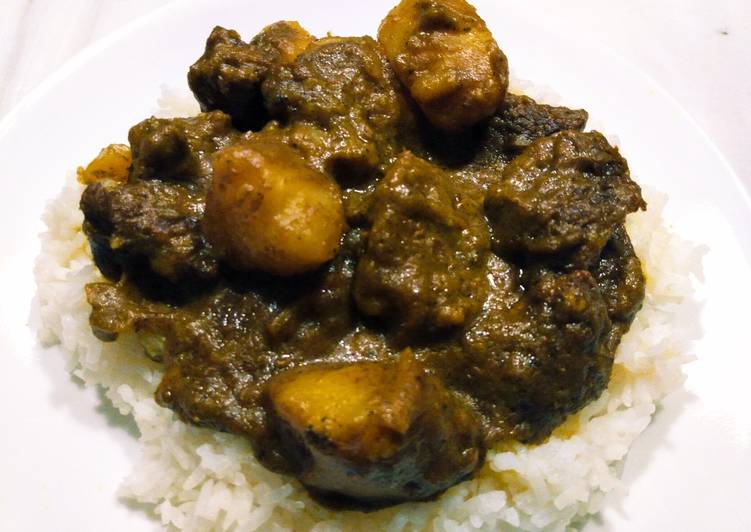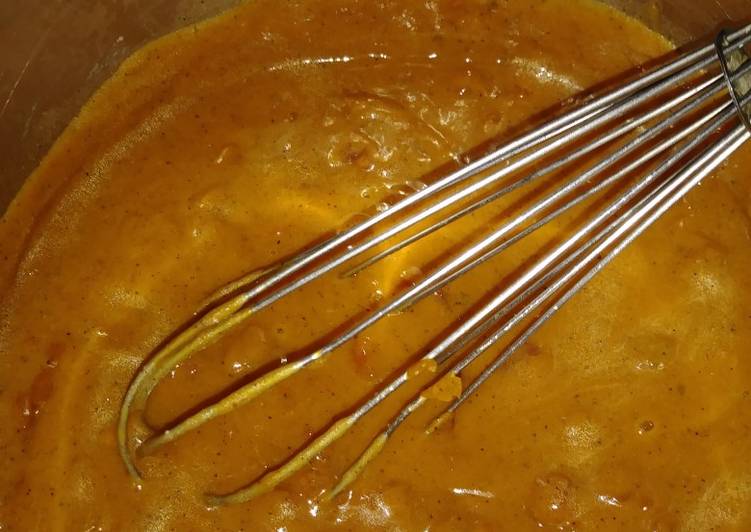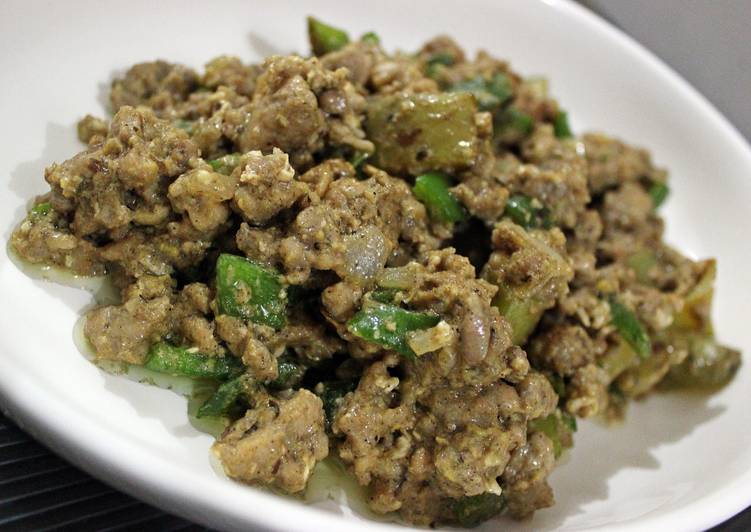
Hey everyone, I hope you are having an amazing day today. Today, we’re going to make a special dish, filipino beef curry. One of my favorites. This time, I’m gonna make it a bit tasty. This will be really delicious.
Filipino beef curry is one of the most popular of recent trending foods on earth. It is appreciated by millions every day. It’s simple, it is quick, it tastes delicious. They’re fine and they look fantastic. Filipino beef curry is something that I have loved my whole life.
Like the chicken version, beef curry is a hearty stew of meat, potatoes, carrots and bell peppers. Beef chunks are first seared for maximum flavor and then gently stewed in coconut milk and curry spices until fork-tender for a rich, tasty dish that's perfect with steamed rice! Tips on How to Make Filipino-style Beef Curry: Filipino Style Beef Curry is a Filipino style curry dish prepared with beef, curry powder and coconut milk, it's less spicy than the Indian curry. Sear the meat in the pan until all sides are well-browned.
To begin with this particular recipe, we have to first prepare a few ingredients. You can have filipino beef curry using 11 ingredients and 5 steps. Here is how you can achieve that.
The ingredients needed to make Filipino beef curry:
- Take 500 g beef brisket, cut into large cubes
- Make ready 1 cup Greek yogurt
- Get 6 cloves garlic, chopped
- Prepare 1 large onion, chopped
- Prepare 1 thumb-sized nub ginger, cut into small matchsticks
- Get 2 heap tbsp curry powder
- Make ready 2 tsp smoked paprika
- Get 1-400 ml can coconut milk
- Make ready 1 tbsp palm sugar
- Prepare 2 bay leaves
- Prepare 2 large waxy potatoes, peeled and cut into 3 cm chunks
We also have wide variety of recipes to try. Filipino beef curry Jump to: Recipe Weight Loss Tips Before you jump to Filipino beef curry recipe, you may want to read this short interesting healthy tips about The Simple Ways to Be Healthy. This Filipino Kare-Kare Recipe is a meat and vegetable stew with oxtail, beef or tripe, eggplant, banana buds, pechay, string beans, and other vegetables that mainly flavored with a sweet and savory peanut sauce. Kare-Kare is a well- known dish from Pampanga aptly hailed as the Culinary Capital of the Philippines.
Steps to make Filipino beef curry:
- In a bowl, toss the beef with the yogurt and a large pinch of salt. Cover and let marinate in the fridge from 4 hours to overnight.
- Add a splash of veg oil to a large pan on medium-high heat. Remove the meat from the marinade and wipe off as much of the yogurt as you can. Sear the meat in the pan until all sides are well-browned.
- Add the garlic, onion, and ginger to the pan. Let fry for 2 minutes, then add the curry powder and paprika. Let fry another 2 minutes.
- Add the coconut milk, palm sugar, bay leaves and potatoes to the pan, along with 2 cups water. Add a good pinch of salt and several grinds of freshly cracked black pepper. Turn the heat down to low and let simmer for 1.5 to 2 hours until the meat is tender. Add water as needed to keep the meat mostly submerged.
- Once the meat is fork tender, turn the heat back up to medium-high and remove the bay leaves. Let simmer until the sauce is reduced and thick. Serve with freshly steamed rice.
This Filipino Kare-Kare Recipe is a meat and vegetable stew with oxtail, beef or tripe, eggplant, banana buds, pechay, string beans, and other vegetables that mainly flavored with a sweet and savory peanut sauce. Kare-Kare is a well- known dish from Pampanga aptly hailed as the Culinary Capital of the Philippines. Instructions Heat oil in a cooking pot. Add beef and cook until the color turns light brown. Beef Kaldereta is a main stay in any Filipino Kitchen.
So that is going to wrap this up with this special food filipino beef curry recipe. Thank you very much for your time. I am sure you can make this at home. There’s gonna be more interesting food in home recipes coming up. Remember to save this page in your browser, and share it to your family, friends and colleague. Thanks again for reading. Go on get cooking!

